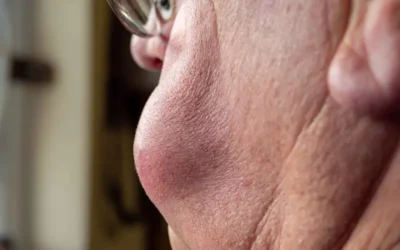The National Center for Health Statistics (NCHS), the federal agency responsible for the use of the ICD-10 in the United States, recently released an updated version of the ICD-10-CM, the HIPAA-adopted code set for medical diagnoses used by medical providers, insurers, and health care administrators. The 2018 update of the ICD-10-CM came into effect on October 1, 2017, which indicates that the users of the ICD-10-CM are required to start using the updated codes as from that date. Medical billing companies must be up-to-date with coding changes made frequently so that physicians can receive their reimbursement on time.
Mental health and/or substance use disorders (SUD) occur when the recurrent use of alcohol and/or drugs causes clinically and functionally significant impairment such as health problems, disability, and failure to meet major responsibilities at work, school, or home. As per reports from U-M Behavioral Health Workforce Research Center (2016), nearly 1 in 5 Americans live with a behavioral health condition in a given year. Eating disorders include illnesses that are characterized by irregular eating habits and severe distress or concern about body weight or shape. Eating disorders include avoidant/restrictive food intake disorder (ARFID), Anorexia Nervosa, Bulimia Nervosa, Binge Eating Disorders (BED) and other conditions that can benefit from mental health treatment. ARFID is an eating or feeding disturbance that is characterized by a persistent failure to meet appropriate nutritional and/or energy needs that leads to significant weight loss, nutritional deficiency and dependence on oral nutritional supplements. AFRID can develop during any stage in life but typically appears during the teen years or young adulthood. For accurate clinical documentation of these disorders, psychologists can use the services of medical billing outsourcing companies.
Generally, most of the changes to mental health codes relate to new specifiers, which occur after the decimal point of the parent code, for substance-abuse-disorders. Psychologists can now select a specific ICD-10-CM code when a patient is in remission from abuse of a variety of substances including opioids and cannabis. An additional new code, for avoidant/restrictive food intake disorder has been moved from “Other specified eating disorder” to “Other eating disorder,” classifying it alongside Binge eating disorder (F50.81). Additional changes were made to diagnostic codes for pain management and neurology. These specifiers will allow for more accurate diagnostic recording.
Diagnostic Code Updates
One of the important updates involves the diagnostic codes for substance use disorders. The ICD-10-CM diagnostic codes recommended by DSM-5 are F1x.10 – for the diagnosis of mild substance use disorder and F1x.20 – for both moderate substance use disorder and severe substance use disorder. In these codes, the letter “x” indicates the class of substance –
- 0 for alcohol use disorder
- 1 for opioid use disorder
- 2 for cannabis use disorder
- 3 for sedative, hypnotic, or anxiolytic use disorder
- 4 for cocaine use disorder
- 5 for amphetamine or other stimulant use disorder
- 6 for phencyclidine or other hallucinogen use disorder
- 7 for tobacco use disorder
- 8 for inhalant use disorder
- 9 for other or unknown substance use disorder
Currently, the clinician indicates that the substance use disorder is in early or sustained remission either by writing in the applicable specifier on the chart or by selecting it from a drop-down menu on an electronic health record. In both ways, the fact that the substance use disorder is in remission is not reflected in the diagnostic codes. Below mentioned are some of the new diagnostic codes (as of October 1, 2017) for mental health or substance use disorders (SUD) and ARFID –
- F10.11 – Alcohol use disorder, mild, in early or sustained remission
- F10.21 – Alcohol use disorder, moderate, in early or sustained remission
- F11.11 – Opioid use disorder, mild, in early or sustained remission
- F11.21 – Opioid use disorder, moderate, in early or sustained remission
- F11.21 – Opioid use disorder, severe, in early or sustained remission
- F12.11 – Cannabis use disorder, mild, in early or sustained remission
- F12.21 – Cannabis use disorder, moderate, in early or sustained remission
- F12.21 – Cannabis use disorder, severe, in early or sustained remission
- F13.11 – Sedative, hypnotic, or anxiolytic use disorder, mild, in early or sustained remission
- F13.21 – Sedative, hypnotic, or anxiolytic use disorder, moderate, in early or sustained remission
- F13.21 – Sedative, hypnotic, or anxiolytic use disorder, severe, in early or sustained remission
- F14.11 – Cocaine use disorder, mild, in early or sustained remission
- F14.21 – Cocaine use disorder, moderate, in early or sustained remission
- F14.21 – Cocaine use disorder, severe, in early or sustained remission
- F15.11 – Amphetamine or Other stimulant use disorder, mild, in early or sustained remission
- F15.21 – Amphetamine or Other stimulant use disorder, moderate, in early or sustained remission
- F15.21 – Amphetamine or Other stimulant use disorder, severe, in early or sustained remission
- F16.11 – Phencyclidine or Other hallucinogen use disorder, mild, in early or sustained remission
- F16.21 – Phencyclidine or Other hallucinogen use disorder, moderate, in early or sustained remission
- F16.21 – Phencyclidine or Other hallucinogen use disorder, severe, in early or sustained remission
- F17.11 – Tobacco use disorder, mild, in early or sustained remission
- F17.21 – Tobacco use disorder, moderate, in early or sustained remission
- F17.21 – Tobacco use disorder, severe, in early or sustained remission
- F18.11 – Inhalant use disorder, mild, in early or sustained remission
- F18.21 – Inhalant use disorder, moderate, in early or sustained remission
- F18.21 – Inhalant use disorder, severe, in early or sustained remission
- F19.11 – Other (or Unknown) Substance Use Disorder, mild, in early or sustained remission
- F19.21 – Other (or Unknown) Substance Use Disorder, moderate, in early or sustained remission
- F19.21 – Other (or Unknown) Substance Use Disorder, severe, in early or sustained remission
- F50.82 – Avoidant/restrictive food intake disorder
With new diagnostic codes for substance use disorders and ARFID coming into effect, medical coders should make sure to use these latest codes. Partnering with a reliable medical billing and coding company is the best option for providers to prevent denials, and maximize reimbursement.



